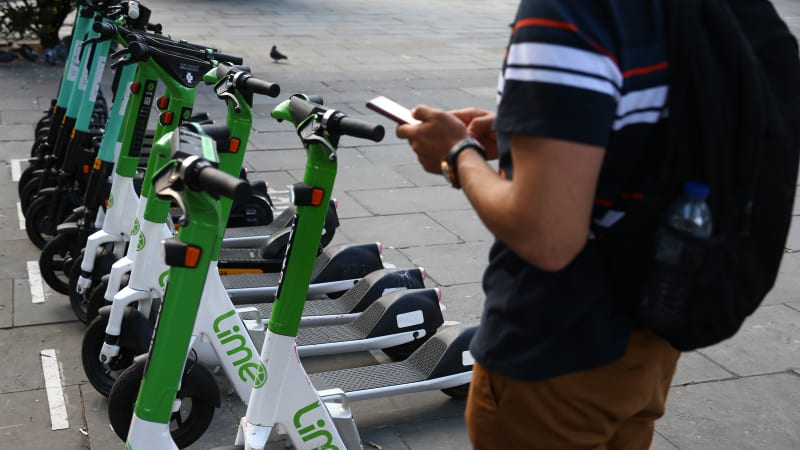New York City trying to find a solution to e-scooter and e-bike battery fires

The rising popularity of electric bicycles and scooters is bringing to light alarming safety concerns, according to a new report. The battery that powers these vehicles has been linked to numerous fires, The New York Times wrote, and officials disagree on how to solve the issue.
In New York City, e-bikes and e-scooters were responsible for 216 fires, 147 injuries, and six deaths in 2022, according to the publication, and 2023’s tally stands at 30 fires, 40 injuries, and two deaths as of February 27. This is a relatively recent problem: New York City legalized these so-called last-mile transportation options in 2020, and they became increasingly common during the COVID-19 pandemic.
Dealing with hoards of e-scooters littering sidewalks and other structures throughout the Big Apple is a minor inconvenience compared to the potentially deadly threat of a battery catching on fire, and lawmakers haven’t quite figured out what do to about this problem. Regulators recently approved a number of bills that aim to lower the risk of a battery fire via “new safety and certification standards, education campaigns on how to prevent fires, and restrictions on the use and sale of used or reassembled batteries,” according to the report.
“All it takes is for one small battery cell to be defective, overcharged or damaged, and a tremendous amount of energy is released in the form of heat and toxic flammable gases all at once,” Daniel Murray, the Fire Department’s chief of hazmat operations, told The New York Times. To make matters worse, lithium-ion battery fires are notoriously complicated to put out and can reignite hours or days later.
Not everyone is waiting for decision-makers to solve the problem; some folks and companies are taking the matter into their own hands. Glenwood Management, a company that runs over two dozen luxury rental buildings scattered across New York City, banned e-scooters and e-bikes in its buildings, The New York Times learned. The New York City Housing Authority floated a similar ban but later backpedaled. One problem is that a lot of the people who ride an electric scooter or an electric bike don’t do it for the thrill; they depend on it to work, often to make deliveries, and banning these vehicles from New York City streets, from buildings, or both would put a serious dent in their income.
Many are trying to find a middle ground. Ariel Aufgang, an architect, proposed a bike and scooter room built with cinder blocks and equipped with better electrical outlets as well as more fire-extinguishing sprinklers. Some are also calling for stricter regulations — including safety standards not unlike those that apply to new cars — and for campaigns that teach users the proper way to charge a lithium-ion battery.
As the debate continues, you can read the full story on The New York Times.
Related video:



